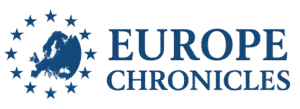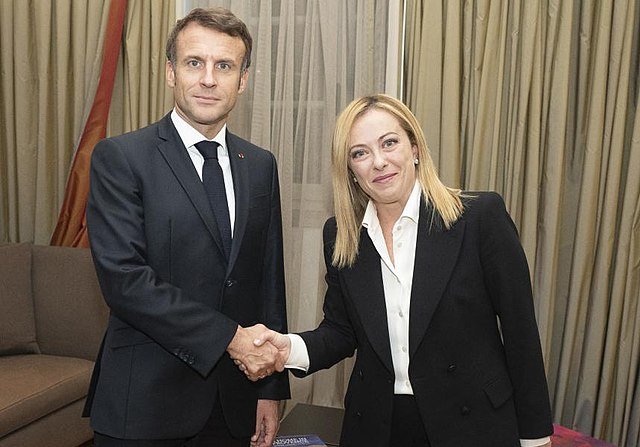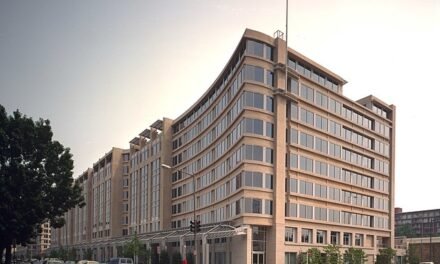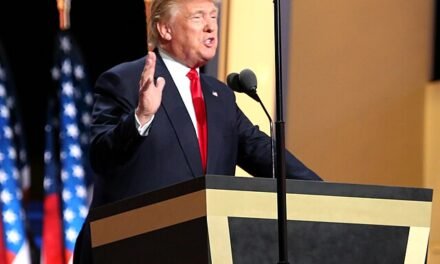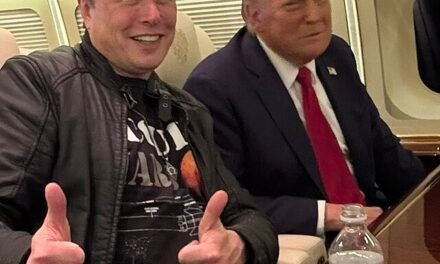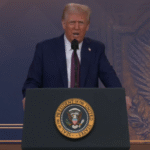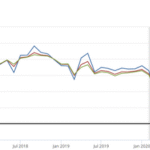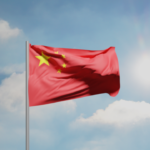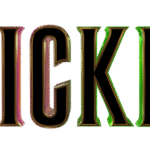In the grand halls of Rome’s Palazzo Chigi, French President Emmanuel Macron and Italian Prime Minister Giorgia Meloni sat down for a three-hour summit on Tuesday, their smiles and warm handshake belying weeks of public spats over Ukraine, trade, and ties with the United States. The meeting, followed by a working dinner, aimed to smooth over tensions between two of Europe’s heavyweight leaders, whose differing visions have strained the Franco-Italian bond. As they toasted to a stronger Europe, both leaders vowed to bridge their divides, but the path forward remains fraught with challenges.
The backdrop to this summit was a series of public and private clashes. Macron, a centrist champion of European unity, has pushed for the EU to assert strategic independence, especially in light of U.S. President Donald Trump’s sweeping tariffs on the bloc. Meloni, a nationalist with a close rapport with Trump, has advocated for tighter transatlantic ties, famously echoing his “Make the West great again” slogan during an April visit to Washington. Their differences sharpened over Ukraine, where Macron’s “coalition of the willing”—a group led by France and the UK to bolster Kyiv’s security—drew skepticism from Meloni, who opposes sending European troops to enforce a potential peace deal, a move deeply unpopular in Italy. Her absence from a May 10 Kyiv trip with Macron and other European leaders, and a subsequent Albania summit call with Trump and Ukrainian President Volodymyr Zelenskyy, fueled perceptions of a rift.
“We’re committed to a stronger, more prosperous Europe,” the leaders declared in a joint statement, emphasizing shared goals like boosting competitiveness in industries like automotive, steel, and AI, and supporting Ukraine’s fight for a “just and lasting peace.” The summit also touched on security concerns, like Russia’s potential expansion in eastern Libya after the fall of Syria’s Bashar al-Assad, a worry for both nations. “Italy and France are united in facing global challenges,” said Italian Foreign Minister Antonio Tajani, calling the meeting a step toward deeper cooperation. Macron’s team echoed the sentiment, framing the visit as a gesture of “respect and friendship.”
Yet, the leaders’ differences run deep. Macron, facing a hostile parliament at home, sees diplomacy as his stage, pushing for European “strategic autonomy” and rallying allies for Ukraine. Meloni, with approval ratings above 45%, leverages her ties with Trump and Vice President JD Vance, positioning herself as a transatlantic bridge-builder. Her absence from key Ukraine meetings sparked criticism in Italy, with some accusing her of prioritizing domestic politics over European unity. “We need to set aside personal ambitions for the West’s unity,” Meloni said last week, a subtle jab at Macron’s leadership style. Meanwhile, Macron’s team dismissed talk of troops in Ukraine as a “misunderstanding,” insisting his focus was on cease-fire talks.
The context is critical. As the EU’s second- and third-largest economies, France and Italy face shared pressures: Trump’s tariffs threaten industries like Stellantis, the Franco-Italian carmaker, while the Ukraine war demands a unified European response. Italy’s trade surplus with the U.S. gives Meloni leverage in Washington, but Macron insists trade talks belong to the European Commission, sidelining her mediator role. Bulgaria’s recent euro approval adds urgency to EU cohesion, as economic integration becomes a counterweight to global instability. Both leaders also share concerns about migration, a recurring friction point, with past disputes over Mediterranean rescues lingering.
Reactions to the summit were cautiously optimistic. “It’s a start, but words need action,” said Elena Rossi, a Rome café owner, reflecting public hope for practical outcomes. Analysts like Marc Lazar from Sciences Po in Paris noted an “undeniable rivalry” but saw the meeting as a pragmatic move. “They’re not natural allies, but necessity drives cooperation,” he said. The commitment to a 2026 summit in France suggests a long-term effort to align.
The stakes are high. A united Franco-Italian front could shape EU policy on trade and defense, but unresolved tensions—especially over Ukraine’s security guarantees and tariff responses—could undermine progress. Questions linger: Can Macron and Meloni balance their competing visions? Will their cooperation withstand domestic pressures and Trump’s influence? For now, as the lights dimmed over Palazzo Chigi, the two leaders showed they can talk the talk, but Europe is watching to see if they can walk the walk together.
